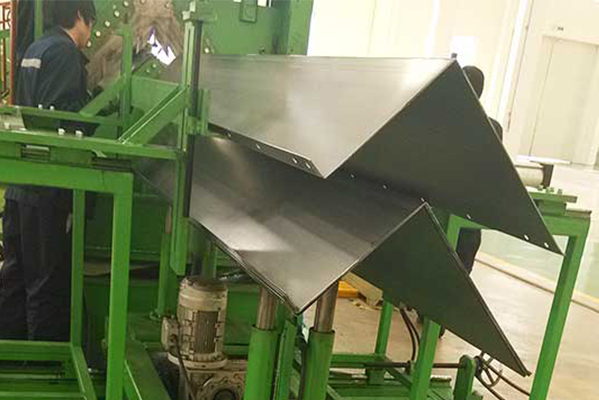Navigation Menu
Contact Us
- Email:
- info@wxavatar.com
- Address:
- Yurong Village, Yuqi Street, Huishan District, Wuxi, China.
Release Date:Jun 11, 2025 Visit:86 Source:Roll Forming Machine Factory
What Are the Core Characteristics of Modern Steel Silo Roll Forming Machines?
In contemporary industrial manufacturing, the efficiency and quality of steel silo construction are paramount. This heavily relies on the core production equipment: the steel silo roll forming machine. So, what exactly are the key features that modern steel silo roll forming machines possess, enabling them to meet ever-growing production demands?

First and foremost, a higher level of automation and intelligence is a significant characteristic. Moving away from past modes heavily reliant on manual operation, modern forming machines commonly integrate advanced control systems. This means the entire process, from raw material feeding and roll forming to cutting, can achieve high levels of automation. Operators mainly focus on parameter setting and monitoring, as the machine autonomously handles most of the work. Some advanced equipment even includes data collection and analysis functions, providing insights for production optimization.
Secondly, balancing forming precision and efficiency is a critical consideration for modern steel silo roll forming machines. Precise mold design and advanced control algorithms ensure the dimensional accuracy of steel plates during the forming process, preventing cumulative errors. Simultaneously, the operational speed of the equipment has seen notable improvements, allowing for the processing of more panels per unit time, thereby significantly boosting overall production efficiency. This combined pursuit of precision and efficiency ensures that the manufactured steel silo components better meet subsequent assembly requirements.
Furthermore, expanded material adaptability is another crucial aspect. Modern forming machines can not only process common silo body panels but also demonstrate greater flexibility in accommodating steel plates of varying thicknesses, widths, and even different material grades. This versatility means a single piece of equipment can handle a more diverse range of production tasks, reducing reliance on specific machine models and enhancing the overall flexibility of the production line.
Additionally, operational simplicity and maintenance convenience are increasingly prioritized. Manufacturers design equipment with user experience in mind, leading to more intuitive interfaces and simplified operating procedures. Even less experienced operators can quickly become proficient after appropriate training. Concurrently, modular design and easily accessible component layouts make routine inspections, troubleshooting, and maintenance significantly more convenient, helping to reduce downtime and ensure production continuity.
Finally, a robust and reliable structural design forms the foundation of modern forming machines. Considering the demanding conditions of long-term, high-load operation, manufacturers pay meticulous attention to structural materials and manufacturing processes. This ensures the equipment maintains stable operation even in harsh working environments, reducing the likelihood of malfunctions and extending the equipment's lifespan, providing solid support for production.

In summary, modern steel silo roll forming machines exhibit powerful production capabilities and adaptability through continuous optimization in areas like automation, intelligence, precision efficiency, material adaptability, operation and maintenance, and structural reliability. These core characteristics collectively establish their important position in modern industrial manufacturing, offering strong technical support for efficient and high-quality steel silo fabrication.